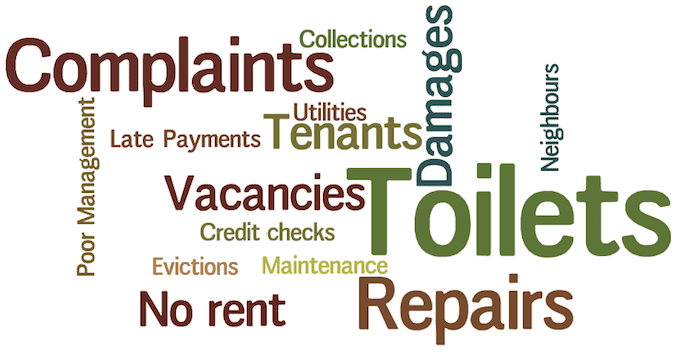Renting a property in Dubai offers convenience and flexibility, but occasionally, disputes may arise between tenants and landlords. When faced with an issue that requires intervention, filing a complaint against your landlord can be a proactive step toward seeking a resolution and safeguarding your rights as a tenant.
Understanding the process and following the correct procedures is crucial in ensuring that your complaint is properly addressed.
In this article, Khairallah Advocates, the best legal firm in Dubai, will provide you with a comprehensive guide on how to file a complaint against a landlord in Dubai, empowering you with the knowledge to navigate the complaint process effectively and assert your rights as a tenant.
Explore Additional Content About: Enforcing a Foreign Judgment in a Child Custody Case in the UAE

When to file for rental disputes in Dubai?
In Dubai, tenants or landlords can file rental disputes when they encounter issues or disagreements related to their rental relationship. It is recommended to file for rental disputes as soon as possible after the dispute arises to address the matter promptly.
Common reasons for filing rental disputes include:
- non-payment of rent
- lease violations
- property maintenance issues
- disputes over security deposits
- termination of the lease agreement.
By filing rental disputes in a timely manner, tenants and landlords can seek resolution and protect their rights under the applicable laws and regulations in Dubai.
Read more about Can a Landlord Charge You for Repairs After You Move Out in the UAE?
How do I complain about my landlord in Dubai?
Renting a property is a common practice in Dubai, but sometimes issues may arise between tenants and landlords. If you find yourself facing a problem with your landlord that requires intervention, filing a complaint can help you seek a resolution, here are the basic steps:
Step 1: Understand Your Rights and Responsibilities:
Before filing a complaint, familiarize yourself with your rights and responsibilities as a tenant in Dubai. This knowledge will help you determine if you have valid grounds for a complaint. The Real Estate Regulatory Agency (RERA) and the Dubai Land Department (DLD) are reliable sources of information regarding tenant rights and the applicable laws and regulations.
Step 2: Gather Evidence:
As Landlord Tenant Law in Dubai, Compile all relevant evidence to support your complaint. This includes documents such as the lease agreement, payment receipts, photographs or videos of the property’s condition, and any written correspondence with the landlord. Strong evidence will strengthen your case and increase the chances of a favorable outcome.
Step 3: Contact the Dubai Rental Disputes Center (RDC):
The RDC is a specialized entity in Dubai that handles rental disputes. You can visit their office, call their helpline, or visit their website to get information on the specific process for filing a complaint. The RDC provides assistance to both tenants and landlords in resolving disputes.
Step 4: Prepare Your Complaint:
Write a clear and concise complaint letter addressed to the RDC. Include essential details such as the property address, lease agreement specifics, and a description of the issue you are facing. Provide a timeline of events and be specific about the resolution you seek.
Step 5: Gather Supporting Documents:
Include copies of all necessary documents that support your complaint. This may include the lease agreement, payment receipts, written notices or communication with the landlord, photographs, or videos. Ensure that you keep the originals for your records.
Step 6: Pay the Required Fees:
There may be administrative fees associated with filing a complaint. Confirm the exact fees and payment methods with the RDC. Ensure that you pay the fees as instructed to proceed with your complaint.
Step 7: Attend the Preliminary Hearing:
Once your complaint is submitted, the RDC will schedule a preliminary hearing. Both parties, you and your landlord, will be required to attend. During this hearing, present your case, provide evidence, and explain the issue you are facing. Be prepared to answer any questions asked by the RDC.
Step 8: Mediation and Resolution:
At the preliminary hearing, the RDC may attempt to mediate a resolution between you and your landlord. It can be documented and enforced if both parties agree on a settlement. If a resolution cannot be reached, the case may proceed to a formal hearing.
Step 9: Formal Hearing and Judgment:
If the dispute remains unresolved after mediation, the RDC will schedule a formal hearing. During this hearing, present your case in detail, including all evidence and supporting documents. The RDC will evaluate the arguments and evidence presented by both parties and issue a judgment based on the applicable laws and regulations.
May you like to read about Understanding Tenancy Eviction Notice and Dubai’s Rental Laws
Where do I file a case against a landlord in Dubai?
In Dubai, if you need to file a case against a landlord, you would typically file it at the Rental Disputes Center (RDC). The RDC is a specialized entity that handles rental disputes between landlords and tenants in Dubai. It serves as the primary authority for resolving rental-related issues and disputes.
You can visit their office, contact their helpline (+971 4 203 9000), or visit their website (www.rdc.gov.ae) to obtain information about the case filing process, required documents, and applicable fees.
for more information we advise you to consult with our lawyers, It is advisable to seek legal advice from a lawyer who specializes in property and rental disputes. They can guide you through the process, assess the merits of your case, and help you understand the specific legal procedures, documentation requirements, and applicable laws.
would you like to read Claiming Tenant Compensation if The Landlord Rents out the Property After Sending an Eviction Notice For Personal Use?

Conclusion
Filing a complaint against a landlord in UAE requires careful preparation, an understanding of your rights, and adherence to the proper procedures. By following this step-by-step guide and seeking assistance from the Rental Disputes Center Dubai, you can navigate the process effectively and work towards a resolution that protects your rights as a tenant.
Contact Khairallah’s best lawyers to have more information about rental disputes.
Access Supplementary Information About: Medical Malpractice In accordance with the provisions of Federal Decree Law No. (4) of 2016




I need some help regarding to the landlord and tenant.
I am the tenant we paid 3000 for rent of this month and 500 for deposit, she doesn’t give back all the money.